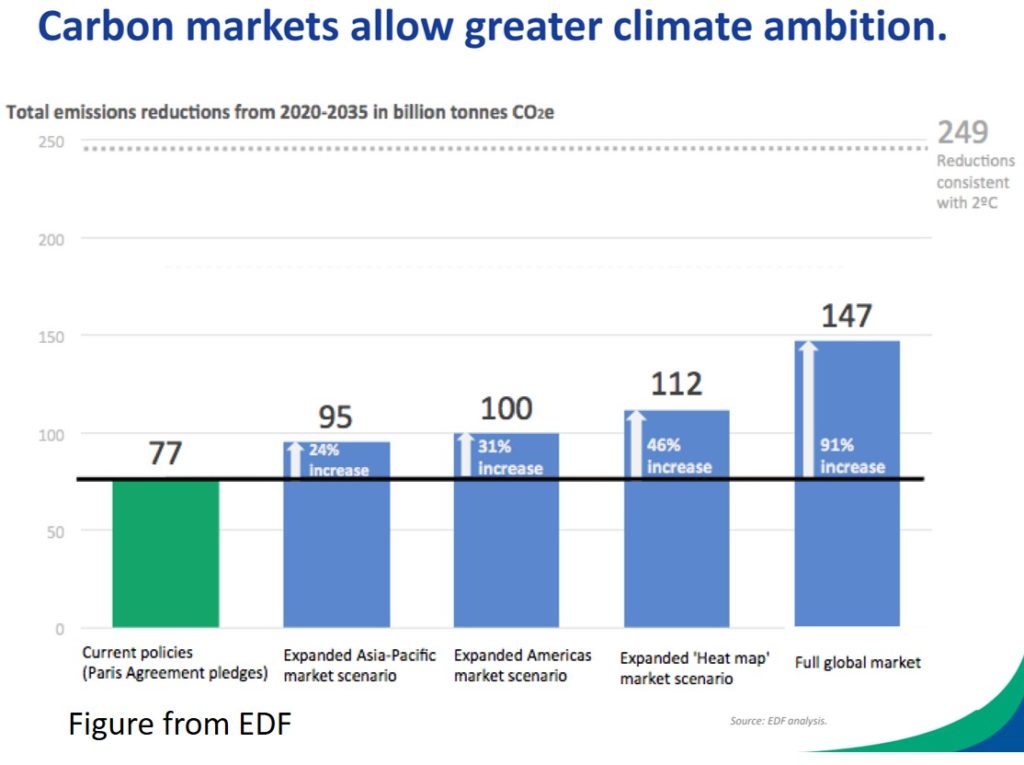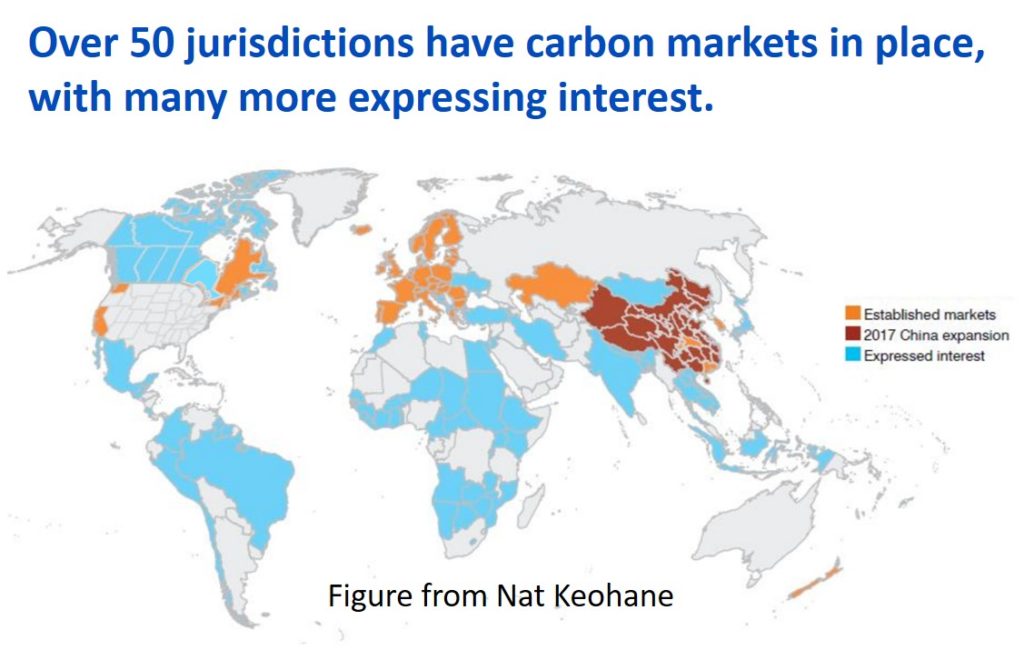Rocket Fuel Boost
Posted: May 25, 2019
“We’re not on track to meet the Paris emission reduction goals. But putting a price on carbon will give us a ‘rocket-fuel boost’”, said Nat Keohane, VP-Climate for the Environmental Defense Fund in an April 25th webinar.
International agreements and individual behavior are critical, but not enough. We need a broader set of economic incentives – policies that align “human nature” with “mother nature”.
That’s where the power of economic incentives comes into play. We need policies that reflect the true cost of putting carbon into the atmosphere, and at the same time put a value on both reductions in carbon emissions and carbon capture and sequestration.
Cap and trade will do that.
And it works.
“Every carbon market we have so far has met its emissions targets,” according to Keohane. The success in reducing acid rain in the 90s and 2000s also showed the power of cap and trade.
Reaching carbon neutrality.
But reducing current emissions is not enough. We are already at atmospheric levels of 415 ppm CO2 – more than 30% higher than at any other time in 800,000 years. To stabilize our climate, we need to take some of that CO2 out of the atmosphere, permanently.
Tropical forests are an enormous store of carbon; they not only pull CO2 out of the atmosphere; they store it for the life of the plants. How do we make sure forests are worth more alive than dead?
Innovation is also critical in developing new ways of removing CO2. How do we make sure that innovation is rewarded to take carbon out of the atmosphere and store it?
The value of broad markets.
A trading market where there is value for capturing and sequestering carbon will give a value to innovation, forests, healthy soil practices, land use improvements, wetlands, and other carbon capture strategies.
And the broader the market, the more the economic and environmental benefit.  Environmental Defense Fund staff have analyzed the impact of linking carbon markets. The results are shown in the chart on the right from Keohane’s presentation. For the same expenditure, a global market increases effectiveness in reducing emissions by nearly 100%.
Environmental Defense Fund staff have analyzed the impact of linking carbon markets. The results are shown in the chart on the right from Keohane’s presentation. For the same expenditure, a global market increases effectiveness in reducing emissions by nearly 100%.
Markets are growing and consolidating. California currently trades with Quebec. All countries in the EU ETS[1] trade in a single market. China plans to have a country wide ETS. And many of the current national markets are expressing an interest in broader linkage.
 The International Civil Aviation Organization has put a cap on fuels for international air travel starting in 2021. That will establish a global market for carbon and a value for carbon sequestration, helping to save tropical forests and support other means of sequestration.
The International Civil Aviation Organization has put a cap on fuels for international air travel starting in 2021. That will establish a global market for carbon and a value for carbon sequestration, helping to save tropical forests and support other means of sequestration.
Where to from here?
The need to get a price on carbon is urgent. Rather than arguing about “placing of the deck chairs on the Titanic” we urgently need a price on carbon either by cap and trade or carbon tax. We need to get carbon pricing underway as soon as possible and strengthen and improve the mechanism over time.
[1] Emissions Trading System, the more common global term for cap and trade.
